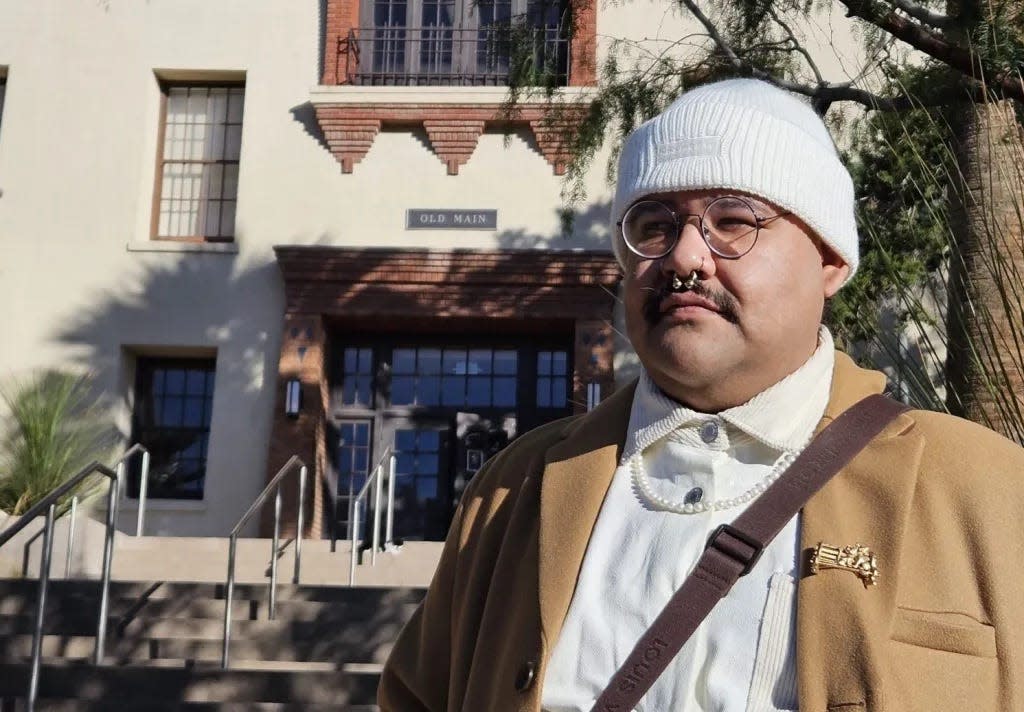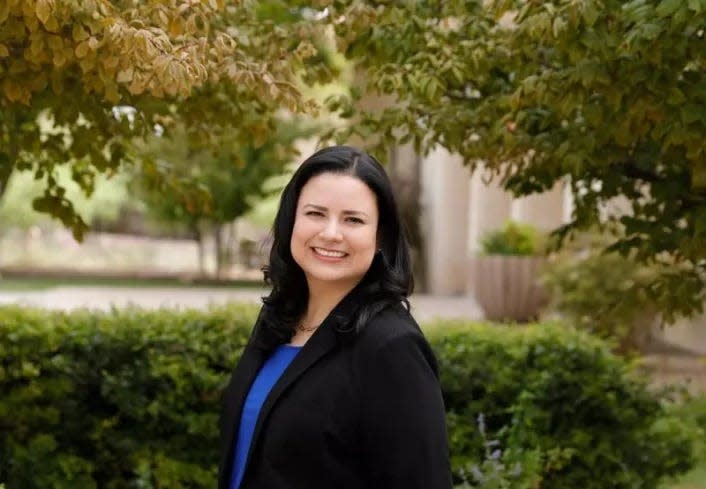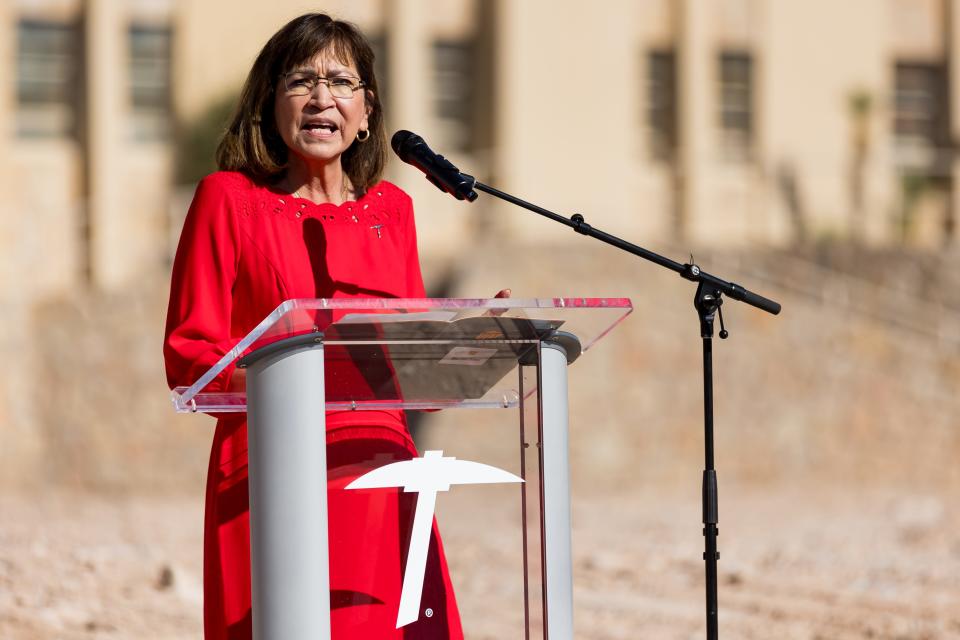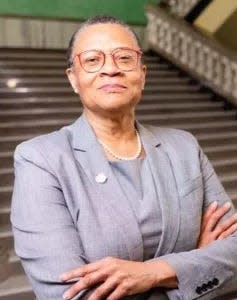Does El Paso need a law school? UTEP begins study to find out

The wheels continue to move on the year-long process that will determine the need and feasibility of a law school in El Paso. Regardless of the pros and cons, the person behind this University of Texas at El Paso-led study has a simple message for all interested parties.
“Do not predetermine the outcome,” said Andrea Cortinas, vice president and chief of staff at UTEP.
Cortinas said that was the main piece of advice she received from officials at a few of the state’s law schools. To do otherwise would set the process up for failure. Instead, she requested those involved in the study to keep an open mind.
“Be willing to work with others,” Cortinas said. “Have a lot of perspective represented and see what the data, the interviews and the different parts of the feasibility study show you.”
The Texas Legislature earlier this year appropriated $250,000 for the university to conduct a Law School Planning Study.
Cortinas said the institution plans to issue a request for proposals by early November to hire a consultant. The goal is to select the individual or company in the next two months, have them complete their research by August, and have the study completed by early fall 2024.
More: Texas voters give resounding approval to $18 billion property tax cut in November election

The consultant, in collaboration with a UTEP steering committee and community advisory committee, will investigate the level of demand from students and the community, as well as a financial plan to ensure that a law school is viable. The consultant will gather some of the necessary information from public sources to include the U.S. Department of Labor, the Texas Workforce Commission, the State Bar of Texas and the El Paso Bar Association. The consultant also will schedule meetings with people in the legal and business fields, and others who are interested in this issue, as well as the public.
The university will share the results of the final report with the El Paso’s legislative delegation and the community. The next steps would depend on the findings. If they are positive, the question would be how to proceed. If they were reserved, the question could be about how to address those concerns.
Cortinas said that the university would not offer an opinion about the law school other than to say that if a law school in El Paso was feasible, it should be at UTEP.
Representatives from the American Bar Association (ABA) and the State Bar of Texas said those organizations had no comment about this effort, and Carlos “Charlie” Madrid, president of the El Paso Bar Association, promised to send a statement on behalf of the association’s executive committee, but did not.
El Paso is the only major metropolitan area in the state without a law school. The closest law school is at the University of New Mexico in Albuquerque. The closest one in the state is at Texas Tech University in Lubbock.
More: Greg Abbott has failed repeatedly in school voucher fight. Will that hurt him politically?

State Rep. Lina Ortega, an attorney by trade who represents District 77, which includes UTEP, filed her first legislative bill in this matter during her first session in 2017. She said that El Paso needs a law school to address the region’s shortage of legal representation.
According to the State Bar of Texas, the number of active attorneys in El Paso County has increased to 1,285 in 2023 – about half of them are Hispanic – from 1,202 in 2012, a 7% increase. To compare, based on the latest numbers, there are approximately 6,500 attorneys in Bexar County (San Antonio), and 25,000 in Harris County (Houston). The El Paso County ratio of attorneys to residents is 1-to-767.
As of 2022, 35% of licensed attorneys in Texas earned their law degrees at an out-of-state institution. Of those who earned their degrees in state, most attended UT Austin (19%), Texas Tech University (17%) and St. Mary’s University (10%).
Ortega, who helped secure the funds for the study as a member of the state’s appropriations committee, said the data will provide much needed insights into the factors that the University of Texas System and the community will need to consider.
“I remain dedicated to continuing to advocate for the law school and want the community to understand this is for them,” Ortega said.

Among those who disagree with a need for an El Paso law school is William G. Weaver, professor of political science and co-founder and director of UTEP’s Patti and Paul Yetter Center for Law and its summer Law School Preparation Institute, which has been around for 25 years. He called it “a horrible idea.”
“A law school here makes no financial sense, serves no demonstrated need, would choke off infusion of external talent and would silo El Paso off from the rest of the states and the greater region,” said Weaver, who earned his law degree from the University of Virginia in 1992.
UTEP graduates Samantha Morales and Alfonso Trevizo-North said they seem benefits of a law school in El Paso.
Trevizo-North wants a law school in El Paso. The first-generation American and college student earned his bachelor’s degree in sociology in 2022, and plans to take the Law School Admission Test in January.
The Lower Valley resident said an El Paso law school would increase regional access to legal services. He wants to earn his law degree, pass the bar, and return to El Paso to open a private practice and eventually specialize in immigration law.
“I want to work in this community,” Trevizo-North said.

Morales, whose father is an attorney in El Paso, earned her bachelor’s degree in political science in 2023 and enrolled at the UT Austin School of Law. At this point, she is neutral on the issue.
She said an El Paso law school probably would increase the number of Hispanics who apply for and graduate from law school. According to the 2022 ABA National Lawyer Population Survey, of the country’s 1.3 million lawyers, only 5.8% were Hispanic while Hispanics make up 18.5% of the nation’s population.
Morales, who participated in UTEP’s LSPI, said an El Paso law school would reduce the amount of “brain drain.” For her part, she would like to return to her hometown after she finishes law school and start her career at one of the larger El Paso law firms, but her father recommends that she stay in East Texas because of the amount and variety of legal work.
Regardless of where she starts, she expects to return to El Paso eventually. On the other hand, she said the status quo encourages future law school students to leave El Paso and experience a different way of life.
The law student added that it would take years for a new law school to achieve the status of the state’s established law schools that can recruit the best professors and students.
“I think it might be an uphill battle,” Morales said.
More: Texas voters give resounding approval to $18 billion property tax cut in November election

But every law school has to start somewhere.
The last law school to open in Texas was the UNT Dallas College of Law in 2014. Its feasibility study was completed in 2010. Felecia Epps, the school’s dean, said that El Paso organizers should hire a consultant who is very familiar with ABA standards and processes such as retired law school deans, former ABA administrators, or people with a legal education background.
“In terms of laying the groundwork and getting a good picture of what you need to do, that’s an investment well worth making,” Epps said.
The process is important to Cortinas, UTEP’s chief of staff. The first-generation college student earned her bachelor’s degree in political science from UTEP in 2002. She received a full scholarship to attend the University of California, Berkeley, School of Law, and returned to the region to practice.
Cortinas said it was a difficult decision to move to the West Coast, but it was the right decision for her. She said the experience helped her grow personally and intellectually.
“For me, going out of town and leaving was great, but everyone’s different,” Cortinas said. “Some people can’t leave.”
This article originally appeared on El Paso Times: UTEP law school feasibility study expected to be completed by fall 2024

